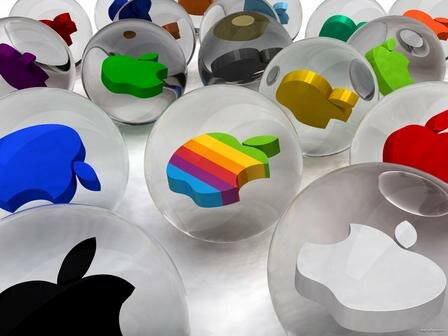What matters more: advertising or customer service?

Apple were recently declared leaders in customer service in the US for a record eighth year, according to the American Customer Satisfaction Index (ACSI). With a score of 87 out of a possible 100 marks, Apple stands a clear 9 points ahead of its nearest rival. And rain falls downwards, you might say.
But the real importance of Apple's commitment to looking after its customers lies behind the prize. According to Claes Formel, founder of ACSI 'in the eight years that Apple has led the PC industry in customer satisfaction, its stock price has risen by 2300%'. So it's not just niceness that makes Apple care. It's hard-nosed economics. The better your service, the more customers you keep, and the more money you can make.
It's a trend we're seeing more and more of in our work with clients. Of course, service has always played a key part in the mantra of 'Never Knowingly Undersold' that is at the heart of the John Lewis brand, just as it does for Waitrose. Lexus has arguably enjoyed an even better reputation for customer service than Apple over the years (all those JD Power awards can't be wrong). And all three of them consistently rate highly among the brands that people love (even when they don't use them themselves.)
But customer service includes more than simple customer care, as Claes Formel explains: 'Apple's winning combination of innovation and product diversification – including spinning off technologies into entirely new directions – has kept the company consistently at the leading edge'.
So new thinking can also help a company keep – and add – customers, and make them happy provided those ideas add something to a customer's life. (Anyone remember DAT players?)
But from our point of view, the really good news is that if your customer satisfaction is high, then your advertising communications seem to work even better. I only hope the same model applies to agencies too.

Simon Robinson
Integrated Creative Director
Likes:
Pasties (cheese 'n'onion), amin maalouf, smoothies, the village of Hambale in Zambia, Sheba miles

Comments
24 September 11
By: CAMILLA
Neuromarketing
While the world was struggling to discuss the characteristics of the iPad, almost no one was reasoning to the aspects of marketing and communications related to Steve Jobs' keynote speech: a blaze of self-exaltation, hypnotically cadenced by words like amazing, incredible, revolutionary, magical, unbelievable , extraordinary, terrific, simple, easy, phenomenal, great, wonderful, cool, better, and so on and so forth. Of course each company speaks well about its own products, but the use of very abundant particularly appreciative terms characterizing the language of Jobs for a decade is a choice that, while not the focus of Apple communication, has always had a fundamental role, not taken for granted at all, especially if we think about the importance of face-to-face presentations. And why all this? Because the first task that our cerebral cortex serves as soon as we decoded the words 'amazing', 'beautiful' , 'exciting' is surprise, enthusiasm. Here comes a mechanism of gratification: the brain produces dopamine. Dopamine enhances a product, it is what animates the consumer's desire to own it.